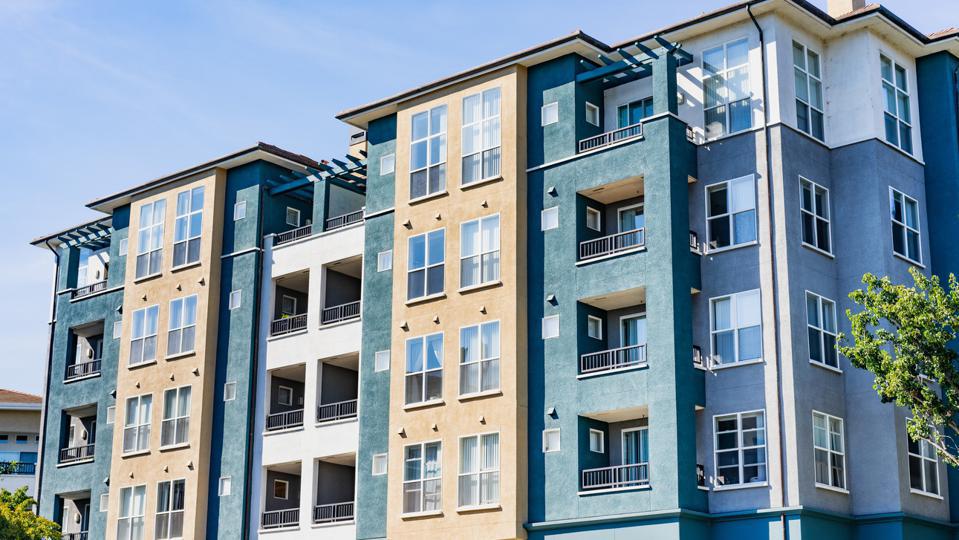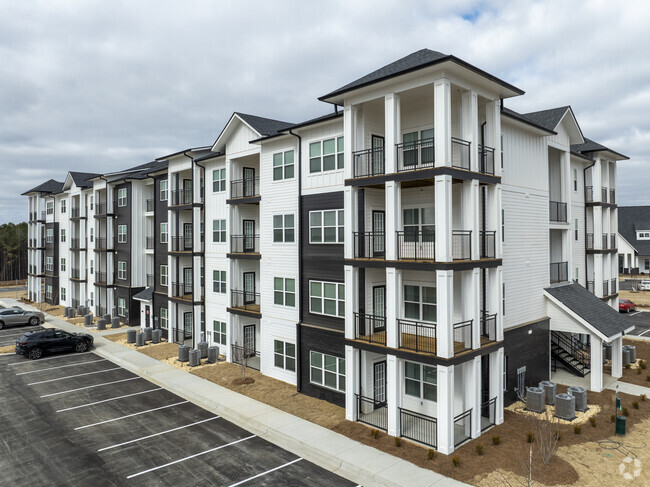Table of Content
▲
If you're a home buyer searching for your dream home, it's important to understand the difference between a condo and an apartment. Deciding on the perfect location, amenities, and budget is already challenging, and choosing the right type of accommodation adds another layer of complexity. While condos and apartments offer similar living styles, each comes with its own set of advantages and disadvantages. To help you make an informed decision, we have outlined the key differences between condos and apartments.
What’s the Difference Between Condo and Apartment
Here's a detailed comparison between a Condo and an apartment, focusing on rent, maintenance, amenities, and other factors.
Also Read: How to rent a commercial property to a big franchise?
Condo vs Apartments
The biggest difference between a condo and an apartment is ownership. Apartments are part of a residential complex and are usually owned by a single entity or management company.
In contrast, each condo is individually owned by a person, known as the landlord. The condo owner manages the property themselves, giving them full control over rental decisions and allowing for a more personal, one-on-one communication process. This is similar to how commercial office spaces and shops are managed.

Condos vs Apartments: what is the difference
There are hardly any physical differences between condos and apartments; the major difference lies in ownership. An apartment is part of a building owned by a single entity, usually a corporation, and is rented out to individual tenants.
In contrast, a condo is individually owned and operated by the owner or under the oversight of a homeowner association (HOA). The HOA often relies on a property management firm for assistance.

Amenities condo vs apartment

Now let’s discuss a few other points which separate the both:
Amenities in Condo
To begin with, condos do not have a standard set of amenities because they depend entirely on the individual owner. Features like granite countertops, stainless steel appliances, and upgraded flooring might be included, along with personal touches such as wall paint colors or kitchen backsplashes. This results in a variety of amenities and styles within the same community, reflecting each owner's unique taste.
Also Read: Tips to buy your dream home with a single income
Amenities in Apartment
In an apartment, you won’t find unique personal touches like custom paint schemes or flooring options. Unless some units have been modernized, the apartments within a building are generally quite similar. However, many apartment complexes now offer amenities such as swimming pools, tennis courts, gyms, and wellness centers, depending on the location and area of the building.
Now, let's move on to the next important factor in choosing a property: rent.
Rent in Condo
Technically, renting a condo won't cost you much more than renting an apartment. If a condo and an apartment are located in the same area of the city, their rental prices are expected to be similar. However, the cost can vary depending on the features and services each one offers. A more modernized unit with additional amenities will naturally be priced higher.
Rent in Apartment
In an apartment, you typically pay your monthly rent and any included utilities to the management or owner. For other services not included in the rent, such as gas, electricity, and internet, you pay the suppliers directly on a monthly basis. The rent might include a flat rate for utilities, which are managed by the owner.
How can we forget about the maintenance? It is something that comes as a part & parcel of renting/owning a property.
Maintenance in Condo
In a condo, the management of the unit is the responsibility of either you or the owner. This could mean more out-of-pocket expenses for you in the future, but typically, the landlord handles most issues through property management or hired maintenance. As previously mentioned, condo upkeep depends entirely on the owner, so your primary point of contact will be the owner, unless there is a mediator involved.
Maintenance in Apartment
In apartment living, you will typically find that free, around-the-clock maintenance is provided by the apartment association, ensuring you aren't responsible for most repairs as a renter. You can usually submit a service request for any needed repairs through the apartment community's online portal—easy! For urgent matters, you can still call during office hours or use the after-hours emergency line.
Possibility of Customizations in a Condo
Condo owners often have more freedom to customize and renovate their units according to their preferences. However, these customizations must adhere to the rules and regulations of the condo association. This can include interior modifications like remodeling kitchens or bathrooms, or even combining units to create a larger living space.
Possibility of Customizations in an Apartment
Apartment residents may face limitations when it comes to customizing their living spaces, as alterations to the unit might be restricted by the building management or landlord. This can restrict the ability to personalize the living space according to individual preferences.
Resale Value of a Condo
Condos hold an edge over apartments in terms of resale value. This is because condos frequently provide shared amenities, which can enhance their appeal to potential buyers. Furthermore, condos are typically situated in prime locations within urban areas, further boosting their resale value.
Resale Value of an Apartment
Apartments might have less resale value compared to condos, particularly if they're situated in less desirable areas and lack appealing amenities. However, apartments that are well-maintained and strategically located can still command a good resale value.
As both Condos and Apartments are owned and managed by someone, there is bound to be a list of rules & regulations to abide by. Let’s have a look:
Rules of Condo Living
The rules and regulations of a condo are primarily established by the HOA, governing various aspects like pet ownership and trash collection. You also have the freedom to redesign and decorate your space according to your preferences. Besides these standard guidelines, you only need to consider any specific instructions provided by the owner. Establishing clear communication and understanding between you and the owner can be highly beneficial in this regard.
Rules of Apartment Living
Every tenant is expected to adhere to the same rules and policies set by the society. These rules play a crucial role in maintaining order within the community, and therefore, you'll encounter a standard set of guidelines issued by the governing committee for all residents to follow. In comparison, apartment living tends to be less flexible than condo living due to the stricter adherence to these established rules and regulations.
Condo vs Apartment - Summing Up
Now that you have a clear understanding of the differences between condo and apartment living, you can make an informed decision about which option suits you best. Opting for a condo means establishing a personal relationship with the owner, who will be your primary point of contact for any needs or issues.
On the other hand, renting an apartment involves dealing with various parties such as agents and society committees, who assist you with everything related to your apartment. Additionally, living among fellow renters fosters a sense of community and neighborliness from the outset. With this knowledge in hand, you can confidently choose the option that aligns best with your preferences.
Also Read: How Apartment Living Can Improve Work-Life Balance









_1770286619.webp)
Ans 1. The biggest difference between a condo and an apartment is ownership. An apartment is defined as a residence that is rented, often as part of a larger residential building. A condo can be similar in structure to an apartment — usually a unit within a larger residential building — but condos are owned instead of rented.
Ans 2. Usually when people use the term Apartment they mean they rent such a space. Flat is a term usually used in Europe and the UK to indicate such a space. Condo is an apartment or flat that the person living in it owns and in addition to a mortgage he may also pay a management fee to a group to manage the building.
Ans 3. An apartment complex is a group of several apartment buildings, usually under the same management. A condominium is an apartment that is owned by an individual or family. (It can also be owned by a corporation.)
Ans 4. Condo vs ApartmentsThe biggest difference between the two is the ownership. An apartment is a part of a residential society, a part of a big residential cluster. They are generally owned by one entity or single management. Whereas every condo has a unique owner also known as a landlord.
Ans 5. The flat is a British English term, whereas Apartment is an American English term. A Flat has one storey most times, and an Apartment can be multi-storeyed. A flat sometimes refers to low/middle-class accommodation, while an apartment refers to luxurious and refined living.